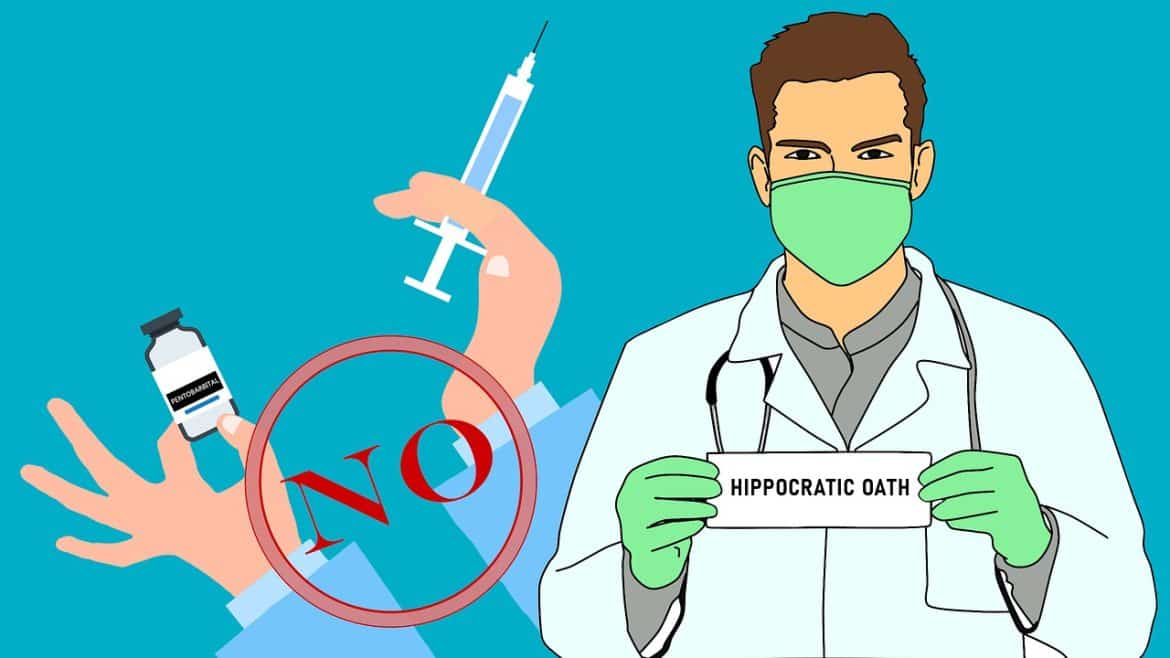In our compassionate guide, we explore the difficult decision of euthanasia for dogs with liver failure. Faced with the emotional turmoil of watching our beloved pets suffer, it can be overwhelming to navigate the options available. This article is here to offer guidance and support in making this compassionate choice, ensuring that your furry friend's well-being and comfort remain the top priority throughout the process.
Understanding Liver Failure in Dogs
Liver failure in dogs is a serious and potentially life-threatening condition that occurs when the liver is no longer able to function properly. The liver plays a vital role in the body, performing functions such as detoxification, metabolism, and the production of essential proteins. When the liver fails, it can lead to a range of complications and health problems.
Causes of Liver Failure
Liver failure in dogs can have several causes, including chronic liver disease, infections, toxins, or genetic disorders. Chronic liver disease, such as hepatitis or cirrhosis, can gradually damage the liver over time. Infections, such as leptospirosis or viral hepatitis, can also affect the liver and lead to failure. Exposure to certain toxins, such as certain medications or chemicals, can further contribute to liver damage. Additionally, some dog breeds may be predisposed to certain genetic disorders that can result in liver failure.
Symptoms of Liver Failure
Detecting liver failure in dogs can be challenging as symptoms may vary depending on the severity and underlying cause. Some common signs to watch for include jaundice (yellowing of the skin or eyes), lack of appetite, weight loss, vomiting, diarrhea, increased thirst or urination, abdominal pain or swelling, and changes in behavior or mood. If your dog exhibits any of these symptoms, it is crucial to consult with a veterinarian for a proper diagnosis.
Diagnosis of Liver Failure
A veterinarian will perform a thorough examination and order certain diagnostic tests to confirm liver failure in your dog. These tests may include blood tests to evaluate liver function and detect any abnormalities, imaging such as ultrasound or X-ray to examine the liver's structure, and possibly a liver biopsy to assess the extent of damage. Proper diagnosis of liver failure is essential for determining the most suitable treatment options.
Treatment Options for Dogs with Liver Failure
Treating liver failure in dogs requires a comprehensive approach that addresses the underlying cause, manages the symptoms, and supports the liver's function.
Medical Management
Medical management for dogs with liver failure often involves medications to alleviate symptoms, control infections, and protect and support liver function. Your veterinarian may prescribe medications such as antibiotics, anti-inflammatory drugs, antioxidants, and supplements like milk thistle or SAMe to promote liver health. Regular monitoring of liver function through blood tests may also be necessary to evaluate the effectiveness of the treatment.
Surgical Options
In some cases, surgical intervention may be necessary to treat liver failure in dogs. Surgical options can include procedures such as liver biopsies, shunt closing, or, in severe cases, liver transplantation. These surgeries are complex and require a skilled veterinary surgeon and specialized facilities. Surgical treatment is typically considered when medical management alone is not effective or for specific conditions that are amenable to surgical intervention.
Dietary Changes
Dietary modifications are an essential component of managing liver failure in dogs. Specialized diets with reduced sodium and high-quality protein content can help reduce the strain on the liver. These diets are often low in copper, as excessive copper accumulation in the liver can contribute to liver failure in certain breeds. It is essential to consult with your veterinarian to determine the appropriate diet for your dog's specific needs.

This image is property of pixabay.com.
Quality of Life Considerations
Assessing and maintaining your dog's quality of life is crucial when dealing with liver failure. While the disease can present challenges, there are measures you can take to improve your dog's comfort and well-being.
Assessing Your Dog's Quality of Life
Regularly evaluating your dog's quality of life can help gauge the effectiveness of the treatment and determine if any adjustments are necessary. Some key factors to consider include your dog's level of pain, appetite, energy levels, overall mobility, and ability to engage in activities they enjoy. Monitoring changes in these areas can provide valuable insights into your dog's well-being.
Factors Affecting Quality of Life
Several factors can influence your dog's quality of life when dealing with liver failure. These may include the severity of the disease, the effectiveness of the treatment, the presence of complications or comorbidities, and your dog's individual response to the treatment plan. It is essential to collaborate closely with your veterinarian to ensure the best possible care for your dog and to make informed decisions regarding their quality of life.
Relieving Pain and Discomfort
Pain management is a crucial aspect of improving your dog's quality of life. Your veterinarian may prescribe pain medications or alternative therapies to help alleviate discomfort associated with liver failure. Additionally, providing a calm and stress-free environment, providing comfortable bedding, and minimizing physical exertion can also contribute to your dog's overall comfort and well-being.
When to Consider Euthanasia
Deciding on euthanasia is a deeply personal and emotional decision, but it can be a compassionate option in advanced cases of liver failure where maintaining a good quality of life becomes increasingly difficult for your dog.
The Veterinarian's Role
Your veterinarian plays a vital role in guiding you through the decision-making process regarding euthanasia. They can provide information about your dog's prognosis, treatment options, and the realistic expectations for managing liver failure. Their expertise and experience can help ensure that you have all the necessary information to make the most compassionate choice for your beloved companion.
Evaluating Prognosis
When considering euthanasia, it is important to weigh the prognosis for your dog's liver failure. Advanced stages of the disease, severe symptoms, poor response to treatment, or the presence of complications may indicate a reduced likelihood of a satisfactory quality of life. Your veterinarian can provide insight into your dog's prognosis based on their clinical observations, test results, and experience with similar cases.
Managing Advanced Liver Failure
For dogs with advanced liver failure, everyday activities may become increasingly challenging, and their overall well-being may be compromised. As liver function declines, the symptoms and discomfort associated with the disease may become more severe, impacting their quality of life. In such cases, euthanasia might be a decision made out of compassion, allowing your dog to be at peace and free from suffering.

This image is property of pixabay.com.
Understanding the Euthanasia Process
Understanding the euthanasia process can help alleviate concerns and provide reassurance during this difficult time.
Preparation and Consent
Prior to the euthanasia procedure, your veterinarian will explain the process, including the administration of medications and the expected effects. They will also discuss aftercare options such as burial or cremation. You will be asked to provide your informed consent for the procedure, ensuring that you are fully aware of the implications and making the decision in the best interest of your dog.
The Procedure
During the euthanasia procedure, your veterinarian will administer a medication, most commonly a barbiturate, that induces a painless and peaceful passing. The medication typically causes your dog to fall into a deep sleep before peacefully stopping their heart. The procedure is performed quickly and gently to minimize any distress or discomfort for your dog.
Aftercare and Memorial Options
After the euthanasia process is complete, you will have options regarding the aftercare of your beloved companion. Your veterinarian can provide information about burial services or cremation options, including options for personalized memorialization such as cremation urns or keepsakes. It is important to discuss your preferences with your veterinarian and choose a memorialization option that brings you comfort and allows you to honor your dog's memory.
Discussing Euthanasia with Your Veterinarian
Open and honest communication with your veterinarian is crucial when discussing euthanasia. They can provide guidance, support, and answer any questions you may have.
Open Communication
Initiating an open conversation with your veterinarian about euthanasia can help ensure that you have a clear understanding of your dog's condition and available options. Share your concerns, ask any questions you may have, and express your thoughts and emotions openly. Your veterinarian is there to support you and provide the necessary information to make an informed decision.
Questions to Ask
When discussing euthanasia with your veterinarian, it can be helpful to prepare a list of questions to ensure that all your concerns are addressed. Some common questions include:
- What treatment options are available for my dog's liver failure?
- What are the potential risks and benefits of different treatment options?
- What is the expected prognosis for my dog's condition?
- What signs should I look for to assess my dog's quality of life?
- How will the euthanasia procedure be performed?
- What aftercare options are available for my dog's remains?
Alternative Options
While euthanasia may be the most compassionate choice in many cases, it is essential to discuss alternative options with your veterinarian. Depending on your dog's specific circumstances, there may be palliative care measures or additional treatments that can improve their quality of life. Your veterinarian can provide guidance on other avenues to explore before making a final decision.

This image is property of pixabay.com.
The Emotional Impact of Euthanasia
The euthanasia process can be emotionally challenging, and it is essential to acknowledge and address your own grief and emotions during this time.
Grief and Bereavement
The loss of a beloved dog can be deeply upsetting, and grieving is a natural and individual process. It is normal to experience a range of emotions, including sadness, guilt, anger, and even relief. Allow yourself to process these emotions and give yourself permission to grieve in your own way and at your own pace.
Coping Strategies
While the grieving process is different for everyone, there are coping strategies that can help you navigate through this difficult time. Surround yourself with a support network of friends and family who understand and empathize with your loss. Engaging in activities that bring you comfort and solace, such as journaling or creating a memorial for your dog, can also help with the healing process.
Seeking Support
If you find it challenging to cope with your emotions or if your grief becomes overwhelming, do not hesitate to seek professional support. Grief counseling or support groups can provide a safe space to share your feelings and receive guidance from those who have experienced a similar loss. Your veterinarian may be able to recommend resources or organizations that specialize in pet loss support.
Making the Decision: Factors to Consider
When contemplating euthanasia for your dog with liver failure, several factors should be taken into consideration.
The Dog's Age and Condition
The age and specific medical condition of your dog play a significant role in the decision-making process. Older dogs or those with advanced liver failure may have a diminished ability to recover or respond to treatment. The severity and progression of the disease can also impact their overall quality of life. Considering these factors can help guide your decision.
Financial Considerations
Treating liver failure in dogs can be costly, and the financial burden can be an additional factor to consider. Assess your financial resources and determine how much you are willing and able to invest in your dog's treatment. Discussing financial considerations openly with your veterinarian can help you explore viable options that align with your financial capabilities.
Ethical Considerations
When making decisions regarding euthanasia, ethical considerations come into play. It is essential to reflect on your dog's well-being and quality of life. Consider whether the disease and its management are causing your dog significant distress or if their quality of life has significantly deteriorated. Weighing these ethical considerations can guide you in ensuring that you make the most compassionate decision for your beloved companion.
Supporting Your Dog during Euthanasia
Being present and providing support during the euthanasia process can offer comfort to both you and your dog.
Creating a Calm Environment
Creating a calm and peaceful environment for the euthanasia procedure can help alleviate stress and anxiety for your dog. Choose a familiar and comfortable setting, such as your home or your veterinarian's office, and minimize external disturbances. Dimming the lights, playing soothing music, or using calming pheromone sprays can also help create a serene atmosphere.
Saying Goodbye
Saying goodbye to your beloved companion is an essential part of the euthanasia process. Take the time to express your love, gratitude, and appreciation for the joy and companionship your dog has brought into your life. Whisper comforting words, stroke their fur, and let them feel your presence and support during their final moments.
Being Present during the Procedure
Many pet owners choose to be present during the euthanasia procedure. While it is a personal decision, being there can provide you with a sense of closure and reassurance that your dog is not alone. Witnessing the peaceful passing can bring a sense of comfort and enable you to be there for your dog until the very end.
Coping with the Loss
After the loss of your beloved dog, coping with the grief and finding ways to honor their memory can assist in the healing process.
Memorializing Your Dog
Memorializing your dog can provide a means of preserving their memory and celebrating the time you shared together. Create a memorial, such as a photo collage or a personalized tribute, to honor the special bond you had with your beloved companion. You can also consider planting a memorial garden or dedicating a space in your home to display cherished mementos.
Honoring Their Memory
Honoring your dog's memory can be done in various ways. Participate in activities or donate to organizations that support causes aligned with your dog's interests or breed. Volunteer at a local animal shelter or consider opening your home to another dog in need of love and companionship. Their memory can live on through acts of kindness and compassion.
Moving Forward
While the loss of your dog is undoubtedly heartbreaking, finding ways to move forward is an integral part of the healing process. Give yourself time to grieve and remember that it is normal to feel a mix of emotions. Surround yourself with support, focus on self-care, and whenever you are ready, consider sharing your love and companionship with another canine companion. The memory of your beloved dog will always hold a special place in your heart.
Deciding on euthanasia for a dog with liver failure is an incredibly difficult decision, but it can also be a compassionate choice when their quality of life is severely compromised. The journey through liver failure and euthanasia is deeply personal, and it requires open communication with your veterinarian, careful consideration of your dog's well-being, and self-compassion during the grieving process. Remember that you are not alone in this journey, and there are resources available to support you and honor the memory of your beloved companion.


